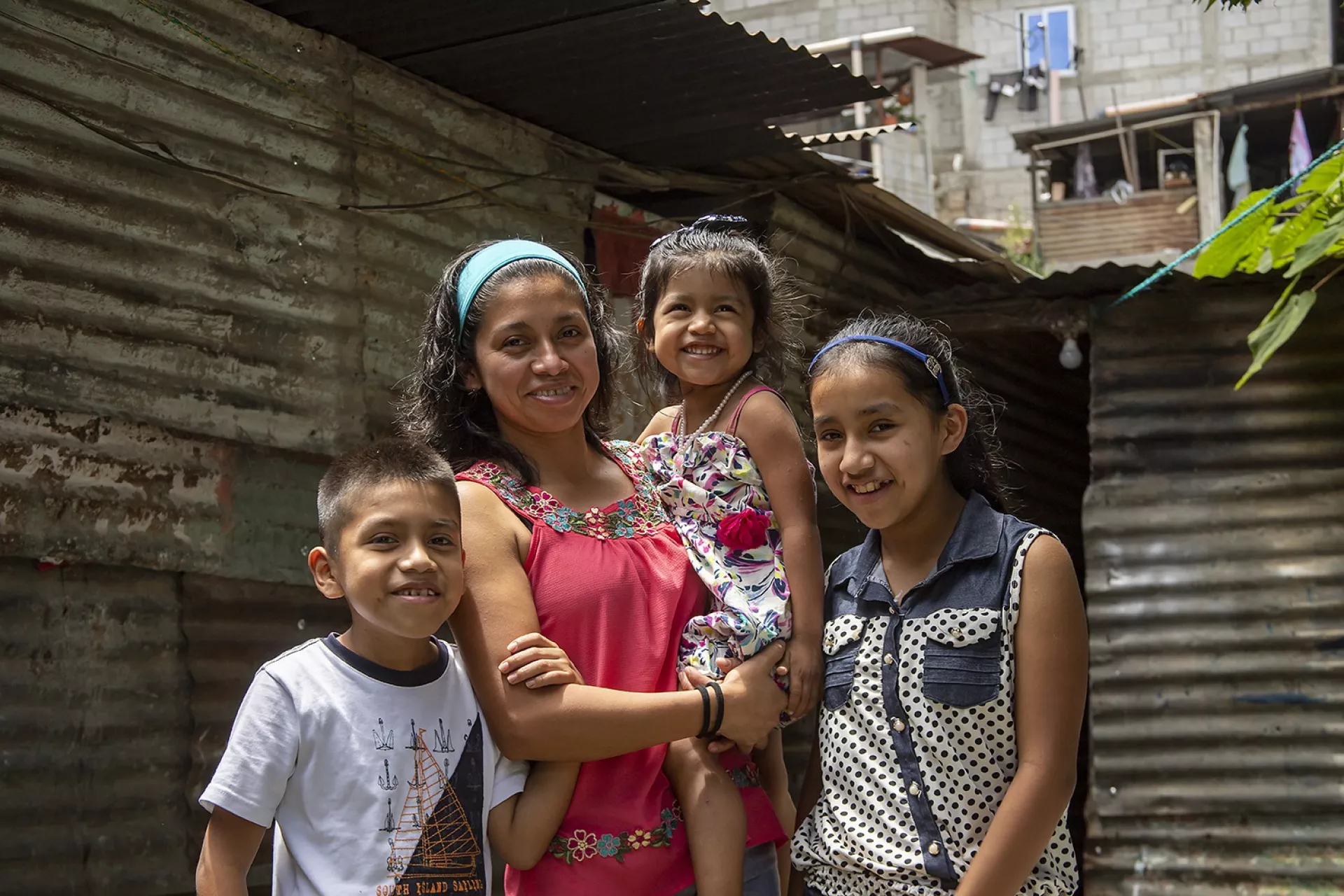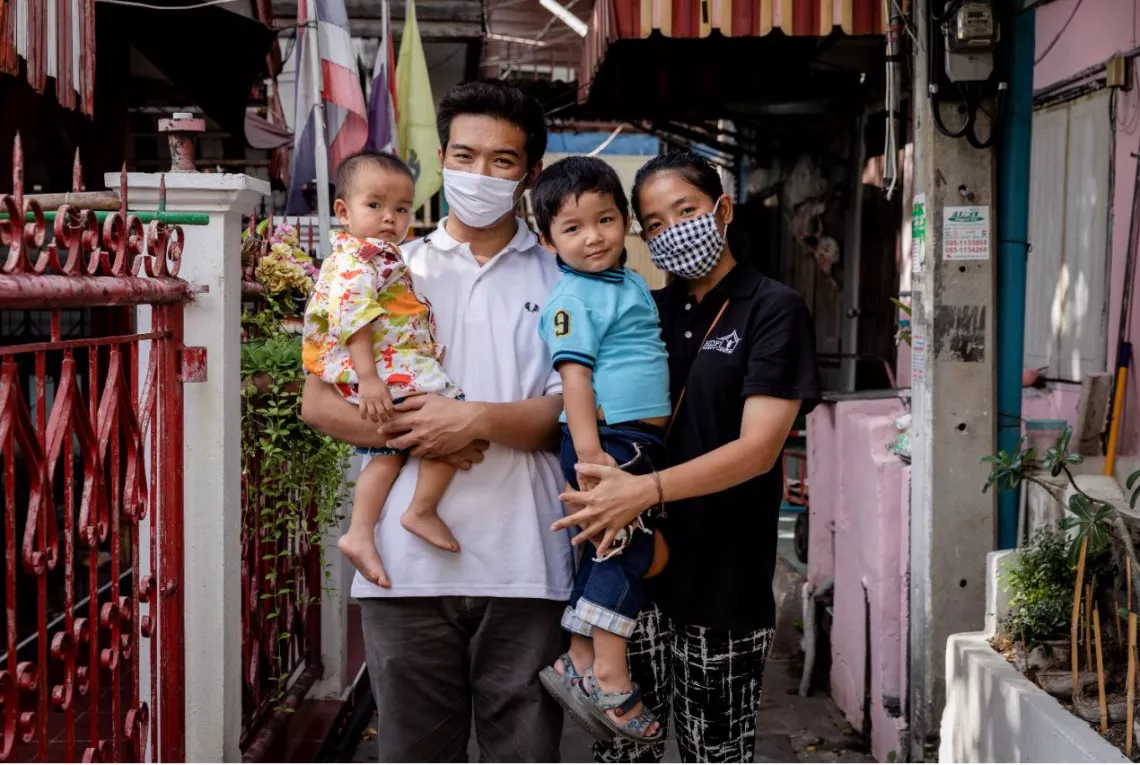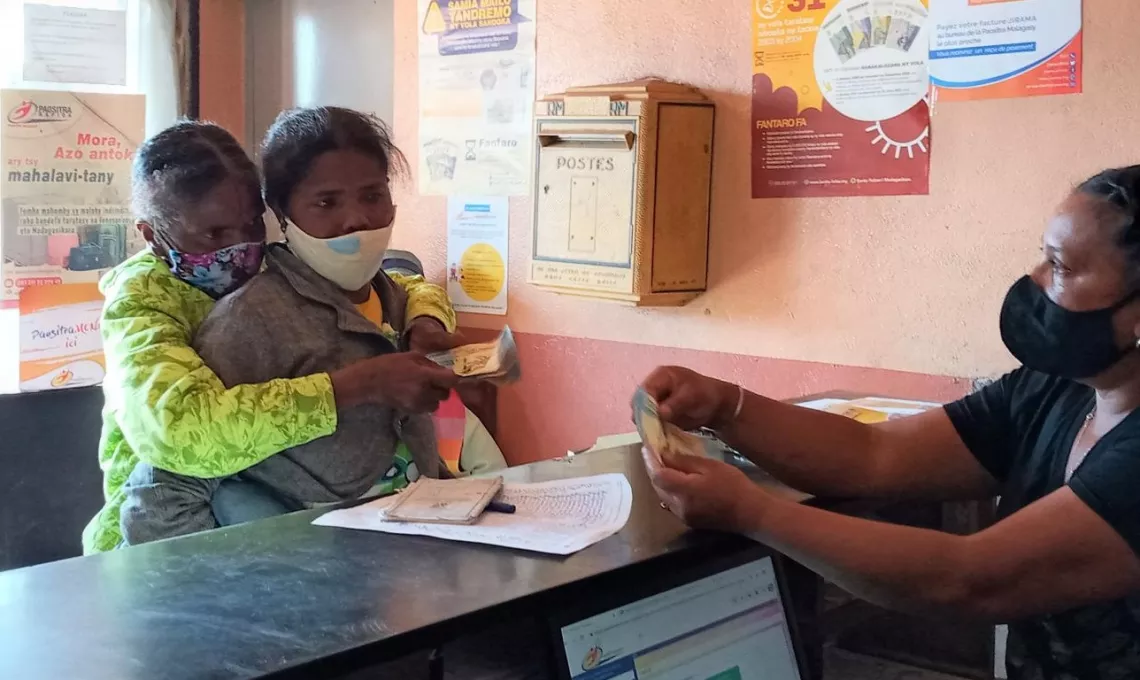Protecting families from the economic impact of COVID-19
The pandemic has taken a devastating toll on families. But cash transfers are helping ease the strain.

The COVID-19 pandemic has taken a devastating toll on hundreds of millions of people across the globe. But it is children and their families who are being hit hardest by the economic crisis caused by the pandemic. Before COVID-19, children were twice as likely as adults to be living in extreme poverty. Now, the number of children living below their respective national poverty line could soar by as many as 117 million, leaving 700 million children’s futures even less certain.
Investing in children and families is an investment in the future.
But a proven solution exists that can shield children and families from financial catastrophe, restore livelihoods and provide the stability that children need to flourish: cash transfers. Families that receive cash transfers are better able to access food and regular health care, and to send their children to school. They’re also less likely to suffer from debilitating stress, which can lead to violence and poor mental health.
Below are just a few examples from around the world of how cash transfers are already making a real difference to the lives of some of the most vulnerable children and their families:
Sierra Leone

Even before the pandemic, 66 per cent of Sierra Leone’s children were living in poverty. Now, with millions of families’ finances even more precarious, children are at an even greater risk of violence, abuse and neglect.
Isatu, an informal trader from Freetown, the capital of Sierra Leone, says sales have been extremely slow since the pandemic began. “Sometimes I haven’t had enough money for food, so my children have had to eat cassava flour porridge with sugar for dinner.”
A government-led emergency cash transfer programme for informal workers in urban areas has provided a lifeline for parents struggling to put food on the table, including Isatu. The emergency cash transfers have helped her diversify her business, Isatu explains: She’s now able to add soap powder to the school goods she usually sells to better provide for her family.
“Sales have improved, so I’ve been able to buy better food for my children,” she says. “And I’m happy that I’ve been able to [save some money to] help them get ready to go back to school in October.”
UNICEF and the World Bank are helping the government strengthen the programme’s impact by connecting families to critical information and social services, including those on gender-based violence.
Thailand

Thailand is working hard to control the spread of COVID-19, but it is already clear that the economic and social impact on the country’s most vulnerable families is severe. With the Thai economy projected to shrink by close to 8 per cent this year, UNICEF and partners have advocated for measures to soften the impact of the crisis on children and families. As a result, the government is providing a three-month top-up to recipients of cash transfer programmes, benefitting around 8 million families, including Tukta’s.
“My children must have a better chance than I did for proper schooling, and this money will help their education,” Tukta says of the additional 1,000 baht (US$32) per month she receives under the programme.
Sri Lanka

Before the pandemic, Wasana and her family lived a relatively comfortable middle-class life in Colombo. But a stringent curfew aimed at stopping the spread of the coronavirus turned the small family’s import business – and their lives – upside down. As business evaporated, so too did their savings. Forced to cut back on food, Wasana says she became desperate, even turning to social media to sell some of their furniture.
Working with government partners, UNICEF advocated for cash transfers to support families like Wasana’s. In the two months payments were provided, around two-thirds of households in Sri Lanka are estimated to have been reached.
“The emergency cash transfer from the Government provided some immediate relief,” Wasana says. “We were able to buy some food.” But she says that even this support hasn’t been enough to make ends meet. “Our family is suffering. Just imagine how it was for those who were already struggling before COVID.”
Madagascar

More than two thirds of children in Madagascar live in what is known as multidimensional poverty – without access to education, health, housing, nutrition, sanitation or safe water. Their already-dire situation has been compounded by the pandemic, which forced the government to introduce a lockdown that left many in the country out of work and with no income.
With support from UNICEF and partners, the government has established “Tosika Fameno” – an unconditional cash transfer allowance providing 100,000 Ariary (US$26) for households identified as vulnerable and economically impacted by COVID-19.
“Tosika Fameno allowed us to pay two months’ rent,” says 49-year-old Emelie, who is paraplegic. “And we could also buy food for my grandson.”
Guatemala

The strict lockdown in Guatemala was particularly devastating for the roughly 60 per cent of the population already living in poverty. Telma was one of the many parents who lost their main source of income during the pandemic and who were left scrambling to find a way to put food on the table.
But with cash assistance from a government programme supported by UNICEF and the World Bank, Telma has been able to find a new source of income – making face masks to protect against COVID-19.
Telma’s first priority upon receiving the cash benefit was to buy food for her children. “My greatest fear was not being able to afford food for them,” she says. The money also goes to the flour she needs to make pancakes, which she sells to try to make ends meet. Telma adds that with the money she had left over, she was also able to buy fabric to make face masks based on a pattern she downloaded from the internet. “I make reusable masks, which I’m selling now.”
Tajikistan

As one of the most remittance-dependent economies in the world, Tajikistan has been hit particularly hard by the global crisis. A World Bank report in July found that some 40 per cent of families in the country reported reducing their food intake since the pandemic, with lower-income households bearing the brunt of the pandemic, especially as the financial support they received from family members working abroad began to dry up.
The Government of Tajikistan, with support from the World Bank, has been providing emergency cash transfers to low-income families with young children: More than 25,000 of the country’s poorest families with children under three have received a one-time payment of 500 TJS (around US$50) to help cover essentials such as food and medication during the crisis. UNICEF and partners have complemented these efforts by sending messages to families about good nutrition and best parenting practices to help children stay healthy and reach their full potential.
Help, reimagined
Cash transfers can make a huge difference in children’s lives – helping families secure food, shelter and education. But while many countries have enacted emergency programmes to support children and families through COVID-19, the global economic slowdown means government budgets are tight, making it impossible to meet all of the growing needs of millions of children.
UNICEF is working with partners to make at-scale, sustainable changes so that every child in every corner of the world can get support whenever they need. As the world wrestles with the impact of the pandemic, it’s time to reimagine a better future – one in which more children are reached with the resources they need to flourish.
This story includes contributions from: Tomoo Okubo, Louise Moreira Daniels, Pilar Escudero, Alejandra Contreras, Mona Korsgard, Tapuwa Loreen Mutseyekwa, Erica Mattellone, Yusuf Bafozoda and Rindra Rakotovoahangy. Read more about UNICEF’s social protection response here.




